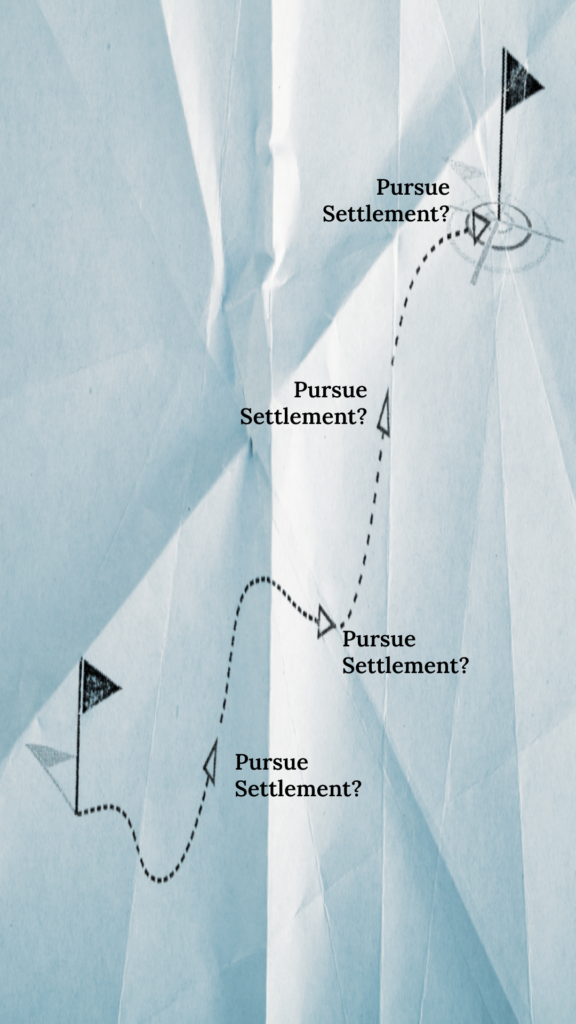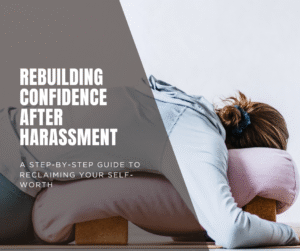Should You File a Complaint with the EEOC?

Before you can sue your company, you must obtain a Right to Sue from your state agency or from the EEOC. This means navigating a government bureaucracy and meeting a high burden of proof.
The Equal Employment Opportunity Commission (EEOC) is the federal agency responsible for enforcing federal laws that make it illegal for employers to discriminate against employees.
Most states have a state agency, referred to as FEPAS (Fair Employment Practices Agencies) , responsible for enforcing their state laws. Find your state agency HERE.
You can file a charge of discrimination with your state agency. If federal laws apply to your claim, it will automatically be filed with the EEOC as well. For the purpose of simplicity, on this site, we will refer to the EEOC Process. We will also use EEOC terminology, so it is easier for you to navigate their process, if you decide to file a claim.
The EEOC is responsible for investigating charges of discrimination (See definitions of discrimination HERE). And you have the burden of proof, to make your case. There are four possible outcomes, with the first three being the most likely:
Complaint Dismissed
Your complaint can be dismissed for a number of reasons, including not enough evidence, complaint filed outside of legal timeframe, the complaint does not meet the legal requirements of discrimination or harassment, etc.
Mediation & Settlement
The EEOC’s first and most preferred avenue for resolving a charge, is mediation and settlement. At every possible juncture in the complaint process, starting with intake, through investigation, and ending with the investigation finding, there is an option to pursue settlement through mediation.
Right to Sue Letter
If you receive a Right to Sue Letter, you have 180 days, 90 days for age discrimination, to find an attorney that will take your case, and sue your company in federal court. A Right To Sue Letter will be issued if the mandated time for investigation of a claim has lapsed, or if the investigation finds discrimination did occur, and a settlement can’t be reached between all parties.
EEOC Takes Case
In a very small number of cases (1-3%) The EEOC may choose to litigate your case on your behalf, to “protect the rights of the individual and the public”. They take a number of factors into account, including their time and resources to pursue litigation, the type of case, how strong the evidence is, and the possible impact for the public.
Is Filing a Complaint With the EEOC an Option?
Before you file a complaint with the EEOC, make sure it is on option that works for you. Determine the following:
1. Determine if Your Claim is Eligible for Complaint
Filing a claim with the EEOC is an option only if certain conditions are met, according to the law. Many complaints are quickly dismissed because they don’t meet these three criteria. If you answer YES to all three questions, you may file a complaint with the EEOC:
- Does your claim meet the definition of discrimination as defined by the EEOC – See definitions HERE.
- Does your company employ 15 or more employees? If you have an age discrimination claim, does your company employ 20 or more employees?
- Did the discrimination happen in the last 180 days (6 months)?
- If it has been more than 180 days, check your state requirements HERE. They may give you more time to file.
2. Evaluate the Benefits & Risks
Creating an outline of all the potential benefits and risks will help you come to a conclusion on the best way to proceed.
- What are the risks and benefits of filing a complaint with the EEOC or your State Agency
- Here are some potential benefits and risks to consider:
Pros
Leverage: You may be able to leverage filing a charge with the EEOC, so your complaint is resolved more satisfactorily with your company. Your company may not want the cost, disruption and examination of a state/federal investigation into their employment practices.
Cost = Free: It doesn’t cost you any money to file a complaint with the EEOC or your state agency. You can always choose to hire an attorney to handle mediation and settlement, later in the process.
Remain Employed: You should be able to remain employed during the EEOC complaint process. The law states it is illegal to fire an employee for filing a complaint with the EEOC. Companies generally avoid additional charges of retaliation, while a complaint is open.
Free Mediation: The EEOC offers mediation to facilitate a quick resolution. You can represent yourself or hire an attorney for the mediation and settlement process, but it isn’t required.
Put it on the Record: Even if your case doesn’t conclude to your highest satisfaction, putting your company on the record as having an issue with discrimination or harassment may establish a history for future complaints.
Greater Visibility: Many people never file a complaint with the EEOC because the process is burdensome. But their numbers are used to establish how pervasive discrimination and harassment are. The true scope of the problem in American businesses is unclear. More complaints may call attention to the problem and help fund resources.
Cons
Time Intesive: This is NOT a quick process. If both parties decide to mediate early on, it can take as little as three months to resolve your case. If you move forward with an investigation, it may be six months to a year, or longer, to get either a finding or a Right to Sue Letter.
Hoops: The process requires a lot of work from you. This includes filling out long forms, sometimes multiple times, submitting paperwork, follow up, keeping track of important dates, making yourself available for phone calls and meetings, just to sit around and wait. Get used to jumping through hoops and long waits.
Limits on Compensation: There are limits on how much money you can recoup, based on the size of your company, and that is the most you MAY be awarded. You will have to pay attorney’s and taxes and will end up with far less than these numbers suggest.
15-100 employees limit is $50,000
101-200 employees limit is $100,000
201-500 employees limit is $200,000
500 + employees, the limit is $300,000
Retaliation: You can file a complaint with the EEOC while you are employed by the company. It is illegal for your company to retaliate for filing a complaint, or testifying in a complaint. Your company may risk a retaliation complaint and terminate your employment.
Mental Health: Going through this process will most likely effect your mental health. It is a grind. And without a lot of positive feedback along the way. In some cases, the process can be re-victimizing – having to rehash the details of your case, over and over again. Plan on being exhausted and frustrated through out the process. And make a plan to take care of yourself. See our blog about managing your mental health HERE.
Unsatisfactory Outcome: As if dealing with discrimination and harassment isn’t hard enough to manage, many cases are funneled into and out of a dismissal and mediation process that lacks real accountability for the company, while burdening the complainant with a lot of work that rarely makes you whole.
Lack of Accountability: Your company will rarely be held accountable to make meaningful changes to their policies. The EEOC lacks the resources to really make an impact with small or medium sized companies. They concentrate on large companies where they hope to make an example for small and medium sized companies.
3. Determine Your Goals
Having a clear goal in mind is critical to keep you pointed in the right direction. If you choose to settle, you will have settlement requirements that must be met, before you ever start the settlement process. Your goal can be anything from financial compensation, change to company policy, and more.
Take some time to write down answers to the following questions:
- What is the best possible outcome for you?
- What do you NEED?
- What do you WANT?
- Determine if filing a complaint will help you accomplish these goals
“Whenever discrimination is found, the goal of the law is to put the victim of discrimination in the same position (or nearly the same) that he or she would have been if the discrimination had never occurred.”
The EEOC
What to Expect
You can file a complaint with your state agency (Find yours HERE) and with the EEOC HERE. The EEOC’s portal is comprehensive, and will keep you informed of any movement with your claim.
Bureaucracy
The EEOC is a government bureaucracy. They have their process. The process takes time. But there is a method to the madness. They have to review, investigate, and mediate a lot of cases. It can feel like you have to jump through a ton of hoops. Because you do.
Neutral Party
Up until the investigation is complete, and a claim has been found to be valid, the EEOC is a neutral party. They are not on your side or your company’s side – even if it may feel that way. In order to investigate and mediate, they must remain neutral throughout the process. Only if the EEOC decides to litigate your case, does the agency take your side.
Mediation & Settlement
The EEOC will always work to facilitate mediation and a settlement, at every stage of their investigation process. You can choose to include them in this process or you can work directly with your company. Once a settlement is reached, The EEOC closes their case.
Limited Resources
The EEOC has limited resources. And they have to sift through a large number of claims. They are acting within the law. They can’t change the law.

Roles and Responsibilities
You:
- Represent Yourself
- Define, speak and hold people accountable to your boundaries
- Document Everything!
- Be Prepared for each stage of the process
- Keep track of important deadlines
- Provide all documents and information required
- Be clear about your goals for mediation and settlement

EEOC:
- EEOC Responsibility to employees / complainants
- EEOC is a neutral party
- Facilitate mediation for settlement
- Investigate complaints of harassment.
- Make a perfunctory finding for the complaint
- Issue complainant a “Right To Sue” letter, without finding
- Issue complainant a “Right To Sue” with finding
- Can take direct legal action with a company – only done in 1-3% of all cases
EEOC Process
The EEOC process starts the same for everyone, by inputing your information into the system. From there, the processes develops and becomes different for everyone.
The EEOC website has a lot of information about the process. If you are filing a complaint through your state agency, check their website for their process. You can find the process HERE.
It is important to pay attention to the details so you don’t miss important deadlines.
You can file a complaint using the EEOC website portal HERE
If There Is No Settlement
If you can’t come to a settlement with your company during the EEOC investigation process, ther are two possible outcomes:
Case Dismissed:
Your case can be dismissed for all sorts of reasons. You may appeal a dismissal, but you have a short time frame to appeal a decision.
Right to Sue
If the EEOC finds the complaint is valid, they will issue a Right To Sue Letter. You may also get one if the investigation time frame has lapsed, without determining if your claim is valid.
If your claim for age discrimination is deemed valid, you have 90 days to find an attorney and file a court case. For all other discrimination cases you have 180 days to file a case in court.
You can find more information on finding the right attorney for your case HERE.
Should You Hire an Attorney For the EEOC Investigation?
Hiring an Attorney for the EEOC investigation process isn’t necessary. But you should strongly consider it for all or parts of this process. This is a legal process with legal procedure, negotiations and unforseen roadblocks an attorney can more easily navigate. If you have limited funds or options, consider hiring an attorney for part of the process:
- Represent you during interviews, investigation, meetings
- Negotiate and mediate settlements
- Review legal documents, settlements
It can be intimidating sitting across the table from your companies lawyers, representing your own interests. They may not take you as seriously during the mediation process. The EEOC mediator may inform you of rules and laws, but they will not negotiate on your behalf.
You can find more information on finding the right attorney for your case HERE.
Are we missing anything? Share your experience and recommendations in our Facebook group HERE.
Get the Latest Buzz
Subscribe to our regular newsletter for the latest news and actions. Your info and time is safe with us!
The Latest News
- May 2025 – NewsletterReading Time: 2 minutesThe latest news includes a NEW audio feature, a big impact milestone, and a new section of the Navigating Workplace Harassment User Guide.
The Latest Blog
- Rebuilding Confidence After HarassmentReading Time: 5 minutesLatest News from the Wolf and The Bee: including our latest media coverage, hitting an impact milestone, a logo glow-up, and new shop items to help you represent!


